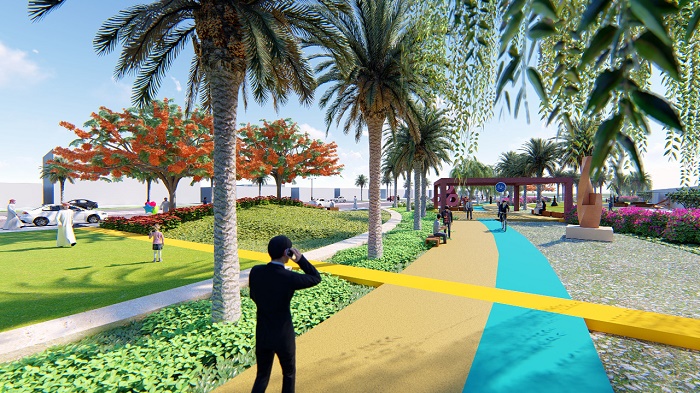
Muscat: Seven wadis in Muscat are to be converted into gardens as part of a plan to increase green cover in the Capital and beautify it.
The Vibrant Public Spaces Initiative is a joint programme by the Ministry of Housing and Urban Planning and Muscat Municipality. Under an approved plan for development of green spaces, the initiative will also minimise the impact of too many concrete and cement structures, a common sight in many cities.
“The initiative will initially look at the Governorate of Muscat before moving to other regions,” said Dr Hanan Al Jabri, the director general of urban planning at the ministry. “The initiative was launched in 2021 and work regarding studies, integration of efforts and data collection from Muscat Municipality, is already underway.
“We conducted an integrated study and looked at existing gardens and parks in the city, according to classifications under the National Urban Development Strategy that split them into spaces that were either undeveloped or developed. The idea behind this project is to make cities like Muscat greener and more attractive to people…this is what we are currently working on.”
Among the wadis selected for greening under the project are Wadi Al Manooma, Wadi Samail in Al Khoudh, Wadi Al Ansab and Wadi Uday and a number of smaller wadis. Once turned into parks, these wadis will meet the standards of parks listed under the National Urban Development Strategy.
There are several other categories of parks mentioned, including regional parks, district parks, neighbourhood parks, local parks, community parks and green zones.
Parks need to meet these classifications by offering certain services and facilities to the public. This helps guarantee the quality of the park and provides services that meet the needs and comforts of visitors to such public spaces.
“These classifications are important because they regulate the quality of gardens and specify the facilities that must be provided such as walking paths, barbecue zones, bicycle paths, public areas for people to play and other facilities,” said Al Jabri.